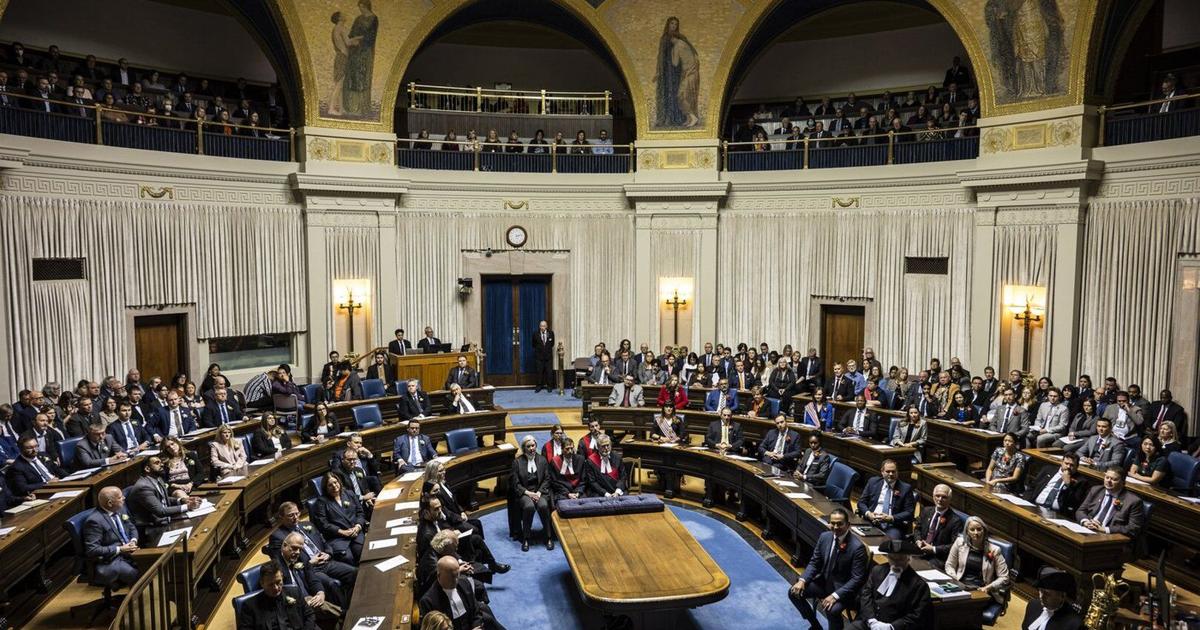CALGARY – Premier Danielle Smith says Alberta is committing $14 million to a West Coast oil pipeline do-over that hinges on First Nations getting on board early and Ottawa reversing a tanker ban that would make such a project unworkable on the northern B.C. coast.
It’s a project Smith hails as the fulfilment of a higher duty to humanity, while her B.C. counterpart characterizes it as half-baked political gamesmanship.
“What stands before us right now is a once-in-a-generation opportunity to unlock our wealth and resources and become a world-leading energy superpower,” Smith told a news conference in Calgary on Wednesday.
“There are billions of people around the world living in energy poverty who demand a higher standard of living. This is not just a question of Alberta’s energy. It is a global, moral imperative.”
The province is putting up $14 million to fund the early regulatory work, but Smith stressed Alberta taxpayers won’t pay to build the pipeline itself. The hope is that Alberta’s kick-start will instil enough investor confidence for the private sector to eventually take over and potentially for First Nations to take ownership stakes.
B.C. Premier David Eby told reporters Smith doesn’t have a real project.
“Premier Smith continues to advance a project that is entirely taxpayer funded, has no private sector proponent,” he said.
Eby said he’s still willing to work with Alberta on projects “that have real private sector backing, that aren’t entirely taxpayer-funded wedge politics.”
The proposal is to be filed to the new federal Major Projects Office, which aims to speed along developments deemed in the national interest. A submission is expected in the spring of next year.
Alberta plans to develop the project with the backing of an advisory group that includes three major Canadian crude pipeline operators: Enbridge Inc., Trans Mountain Corp. and South Bow Corp. No company has stepped forward to actually build the pipeline. No route has been determined, but Smith has said a pipeline should go to the Port of Prince Rupert, B.C.
Ten years ago, Ottawa imposed a ban on oil tankers along a segment of the northern B.C. coast, spelling the end of Enbridge’s proposed Northern Gateway pipeline to Kitimat, B.C., after years of intense environmental and First Nations opposition and court battles.
Smith said Northern Gateway and its potential new iteration share a common goal — expanding the reach of oilsands crude into lucrative Asian markets.
“What keeps coming back is that this is the project that should have been built. This is the one that should have been built when it was first proposed, when it was Northern Gateway 1.0.,” Smith said.
Heiltsuk Chief Marilyn Slett said there’s no support for the pipeline or oil tankers among Coastal First Nations members.
“Premier Smith’s continued talk of oil pipelines and tankers, and the risk of a catastrophic oil spill in B.C.’s coastal waters, is not nation-building,” said Slett, president of Coastal First Nations.
“In fact, it risks the goodwill and support of First Nations for more realistic and economically valuable nation-building projects in B.C. and beyond.”
Alberta Indigenous Relations Minister Rajan Sawhney said she was calling First Nations leaders in Alberta and B.C. earlier this week and the feedback was more positive than what it would have been during the Northern Gateway era.
“What we’ve heard both from industry and Indigenous leaders is that Indigenous voices were not central to the process as Northern Gateway was being discussed,” she said.
“The key piece of advice was to pick up the phone, go to the community, meet people where they’re at, and tell them what it is that you hope to do, and really listen to their concerns and do whatever you can to alleviate or mitigate.”
The province provided supportive statements from the chief of the Fort McKay First Nation in the oilsands region of northern Alberta and the president of the National Coalition of Chiefs.
“True partnership means listening to Indigenous voices, respecting our lands and ensuring our people share in the benefits,” said Fort McKay Chief Raymond Powder.
Dale Swampy, president of the chiefs coalition, said oil and gas participation can be a way to drive economic reconciliation.
“We are happy that Alberta is leading an effort to get another pipeline to the West Coast, and we are especially happy that they have decided to engage with Indigenous nations in B.C. and Alberta right from the very beginning of the process.”
Smith said the tanker ban, along with other federal measures that have proven to be deal-breakers on energy projects, will have to be addressed.
“I’m anticipating that they will make either a repeal of that legislation or acknowledge that the port that we need to export from needs to have some kind of carve-out,” said Smith.
She said the proposal will be a “test of whether Canada works as a country.”
“If we can’t build with the collaboration of the federal government and between provinces, if it’s ‘everybody gets to get their products going to market except Alberta,’ then it’s not a country.”
This report by The Canadian Press was first published Oct. 1, 2025.



